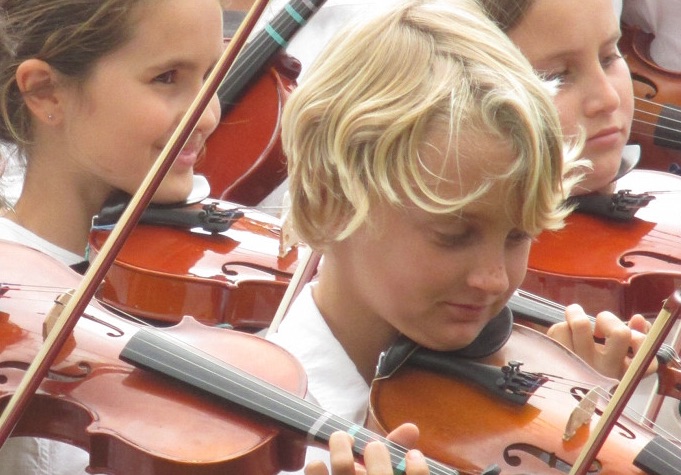Developmental Approach
 Waldorf education provides a rich experience that aims to prepare children to meet the challenges of our world and the future with clarity of thought, a caring heart and confidence.
Waldorf education provides a rich experience that aims to prepare children to meet the challenges of our world and the future with clarity of thought, a caring heart and confidence.
HWS achieves this aim with a creative experiential approach that addresses the whole child: mind, body and spirit.
The structure of Waldorf education follows Steiner's theory of child development, which divides childhood into three developmental stages, and describes learning strategies appropriate to each stage. These stages last approximately seven years. The stated purpose of this approach is to awaken the "physical, behavioral, emotional, cognitive, social, and spiritual" aspects of each individual, fostering creative as well as analytic thinking.
A unique aspect of Waldorf education is that the class teacher stays with the class for several years progressing through the elementary and middle grades with the children. HWS has adopted a dual-track rhythm with one teacher leading the class through elementary school (grades 1-5) and then a new teacher leading the class through middle school in grades 6-8.
The class teacher sets the example of a loving authority figure who is always learning in elementary school. This teacher is responsible for the main lessons and, through them, introduces the entire panorama of the elementary school curriculum. In middle school, the class teacher serves as a guide on the educational journey of the young adolescent as they take their first steps out into the world while discovering their own unique place in it. The HWS middle school also offers a dynamic team teaching model with teachers sharing their expertise in a variety of courses across grades.
Early Childhood — Pre-school and Kindergarten: Ages 3 to 6
During the first years of life, children learn best by being immersed in an environment they can learn from, through unselfconscious imitation of practical activities. The early childhood curriculum therefore centers on experiential education, allowing children to learn by example, and through imaginative play.
Elementary School & Middle School — Grades 1-5 & Grades 6-8
The Elenemtary and Middle schools emphasize cultivating the child's emotional life and imagination, so that students can connect more deeply with the subject matter. Academic instruction is presented through artistic work that includes story-telling, visual arts, drama, movement, vocal and instrumental music, and crafts.
High School — Grades 9-12
High school education focuses on developing the capacity for abstract thought and conceptual judgment. Building creative, critical and analytic thinking through academic subjects, fine and applied arts, music, and drama, the curriculum fosters intellectual understanding, independent judgment, ethical ideals, and social responsibility in our young adults.




